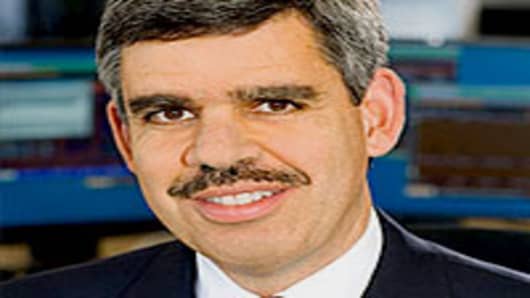The emergence of a potential debt ceiling deal in Washington might forestall default and a credit downgrade, but won't fix what ails the U.S. economy, Pimco's Mohamed El-Erian said.
During the apex of the financial crisis, the Newport Beach, Calif.-based bond management firm first released its forecast for a "new normal": Slow economic growth amid high unemployment and a sloppy national balance sheet.
El-Erian, Pimco's co-CEO, said in a CNBC interview the current fiscal and monetary policies are only ensuring that the firm's outlook will endure.
"The key issue...is that we simply cannot generate enough growth to get us over all these issues," he said. "Therefore, we have these structural headwinds that continue to slow us down. Until we see structural solutions we're going to be stuck on the bumpy road to a new normal."
A deal in Congress that raises the government's borrowing authority by $2.1 trillionand lays the groundwork for greater spending cuts won't do much to address the economy's most important need, which he said is growth.
"This whole debt ceiling debacle is going to knock quite a bit off projections going forward in terms of growth," El-Erian said.
In the near term, the deal could forestall a debt downgrade threatened by ratings agencies, in particular Moody's and Standard & Poor's.
S&P on July 14 put the U.S. on notice that if it doesn't come up with a long-term approach to its various fiscal issues it will lose its coveted triple-A rating status. That would lower the U.S. debt rating and possibly set the stage for higher interest rates across the spectrum, from Treasurys to mortgage rates and credit cards.
"I suspect they're under tremendous pressure not to downgrade," El-Erian said of S&P.
He called on Washington to start addressing structural solutions for the economy rather than just implementing short-term fixes.
"D.C. looked at this whole debt issue and termed it as an end in itself," he said. "For the rest of us, it's a means to an end and the end is, let's get policies in place to promote growth and reduce unemployment. Otherwise we're going to have even greater problems down the road."





